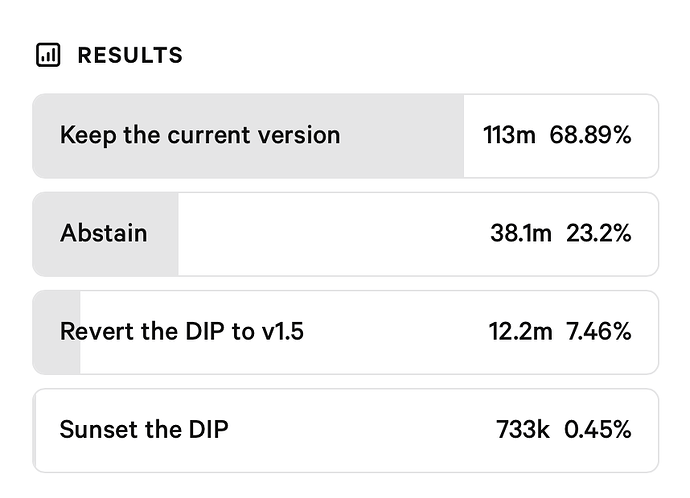The following reflects the views of L2BEAT’s governance team, composed of @krst, @Sinkas, and @Manugotsuka, and is based on their combined research, fact-checking, and ideation.
We voted to keep the current version 1.7.
As we noted in our previous comment, we remain critical of how the DIP is structured and the outcomes it produces. We believe there is still significant work to be done to clarify what the DAO wants to incentivize, how contributors and delegates should be distinguished, and how the program can better align with Arbitrum’s long-term vision.
That said, reverting to v1.5 does not address these issues. Version 1.7, recently approved through a DAO-wide vote, introduces changes that simplify administration, reduce costs, and broaden participation through new tiers. Reverting now would only add more instability without solving the underlying design questions.
Instead of moving backwards, energy should be directed toward accelerating work on a proper contributor and delegate incentive program. One that provides clearer contributor paths, better-defined delegate responsibilities, and more stability and predictability for participants.
For these reasons, we prefer to keep the current v1.7 in place as an interim solution, while focusing on building the next version of the program rather than rolling back to an earlier one.

